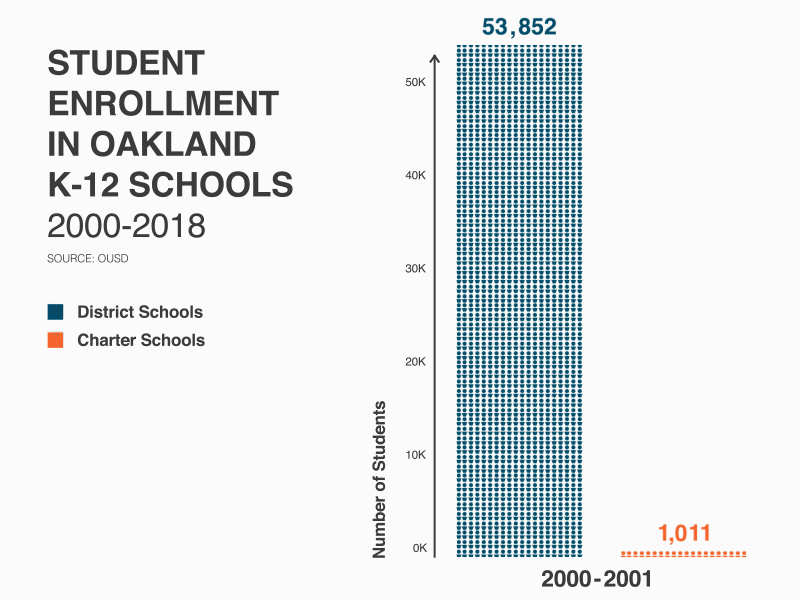How Charter Schools Became Such a Big Player in California's Education System
In the recent school walkouts in Oakland and Los Angeles, striking teachers and their unions took particular aim a charter schools, accusing them of stripping traditional public schools of crucial resources.
Both cities have higher concentrations of students enrolled in charters than nearly anywhere else in California. And in the deals that ultimately ended both labor disputes, each district agreed to consider moratoriums on new charters.
Oakland's school board is expected to vote on a measure this week that would put a pause on approving any new charters in the city.
For the last two decades, Oakland has been a veritable charter boomtown: There are now 45 charter schools attended by about 30 percent of the city's K-12 students, up from 13 charters in 2003. Largely as a result, the district lost about 17,000 students in those 16 years.
The first charter school in Oakland, and one of the first in the California, opened in 1993 in the Fruitvale neighborhood, just a year after the state Legislature gave charters the green light. Oakland's public school system had long struggled academically and financially, and with residents eager for better educational options for their children, the city became fertile ground for new charters to take root.
Fueled by a large influx of outside funding from wealthy donors and a succession of charter-friendly district superintendents and city and state officials, new charter schools in Oakland proliferated, particularly in the decade after 2000, when the number of charter schools in the city more than tripled.

And while certainly not the sole cause of Oakland Unified’s perennial budget woes, it's a factor that has undeniably contributed to the district's fiscal distress. Because OUSD receives per-pupil state funding, having fewer students means a lot less money for the district, even as its CONTINUE READING: How Charter Schools Became Such a Big Player in California's Education System | The California Report | KQED News





